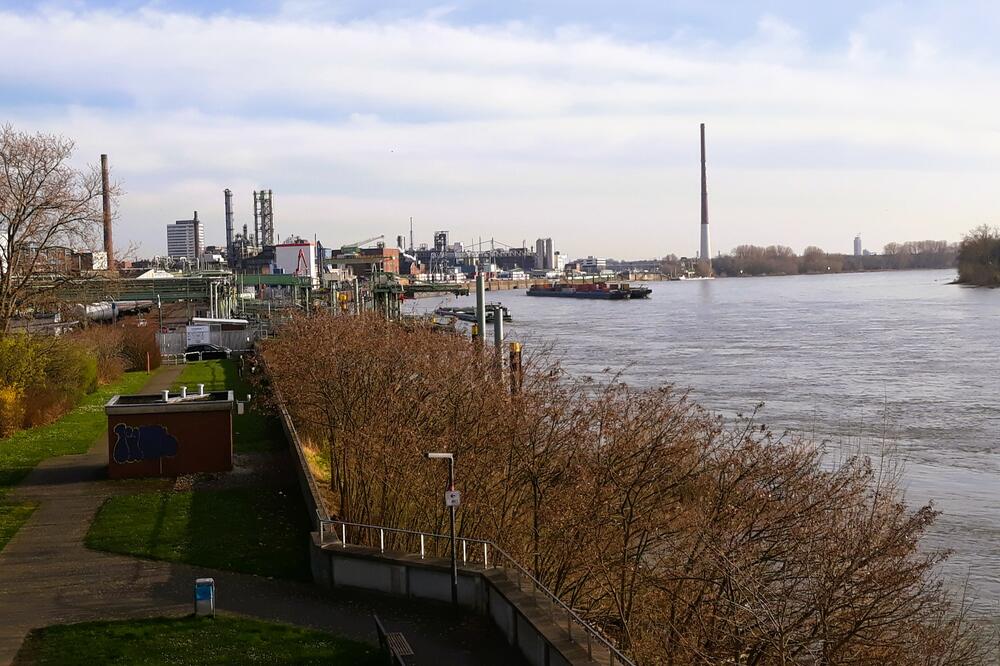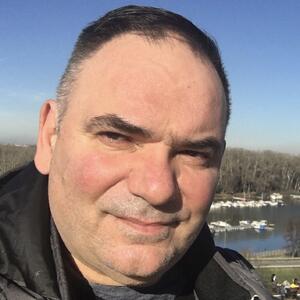Leverkusen is not a place advertised by tourist agencies as a must-visit destination. Curiosity pushes me there, perhaps also a tendency to the attitude that marginalized people deserve a chance - both people and cities.
It's not my first time going there. When the city of Cologne decided to relocate the bus station outside the city area, it placed it in two places - near the Cologne-Bonn airport and near the Leverkusen train station.
Sometimes, living in Cologne, I took a bus from Leverkusen to Berlin, Munich or Hamburg. And that's all I remembered: an unsightly station, the smell of doner from a nearby shop, concrete architecture all around and a few bus platforms.
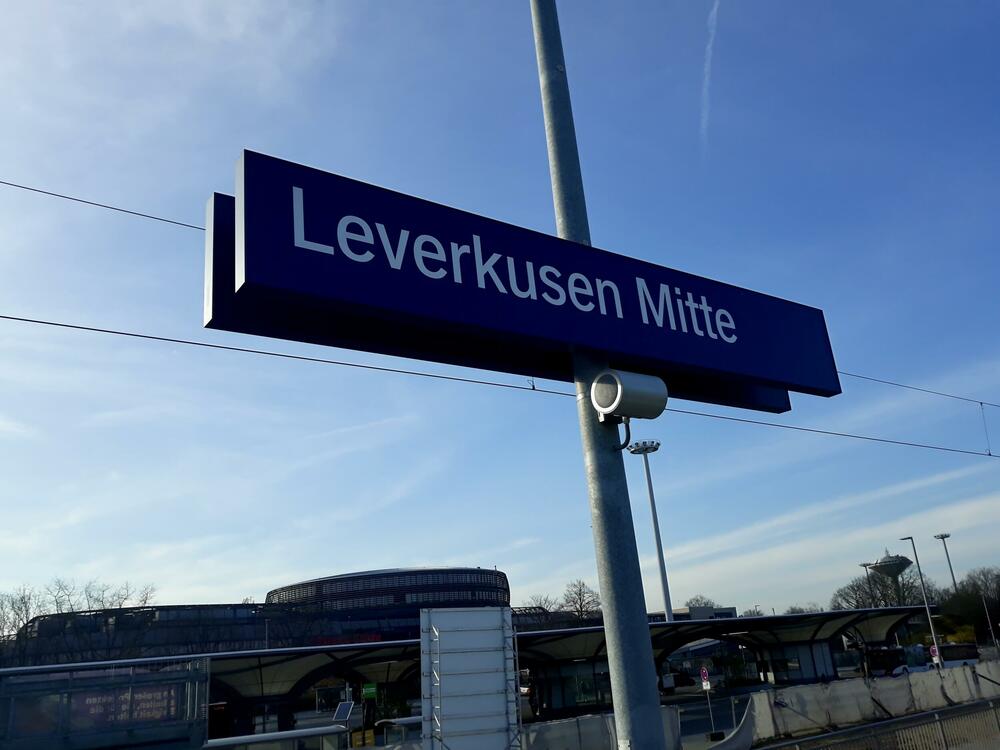
This morning, March shows its best face, the weather forecast predicts plenty of sunshine, and I board the local train to Leverkusen. I am mentally preparing myself as if for a serious trip, although it will only last about twenty minutes. I get out of the station and notice that progress has not bypassed this city either. Bus platforms got canopies.
God as a fortress
I head downtown. First, I come across a red brick church, neo-Gothic, pointing towards the sky. Above the entrance is written in golden letters: "My God is a strong fortress". The church is evangelical. In the Catholic Rhineland, such churches express minority, Protestant self-awareness in a special way. Construction began exactly 120 years ago, and lasted two years. The church was heavily damaged in Allied bombing during World War II. It has been renovated and modernized inside. Now it looks to my eyes as if it was built yesterday. Brick is to buildings like botox to the face - buildings with this exterior seem to never age.
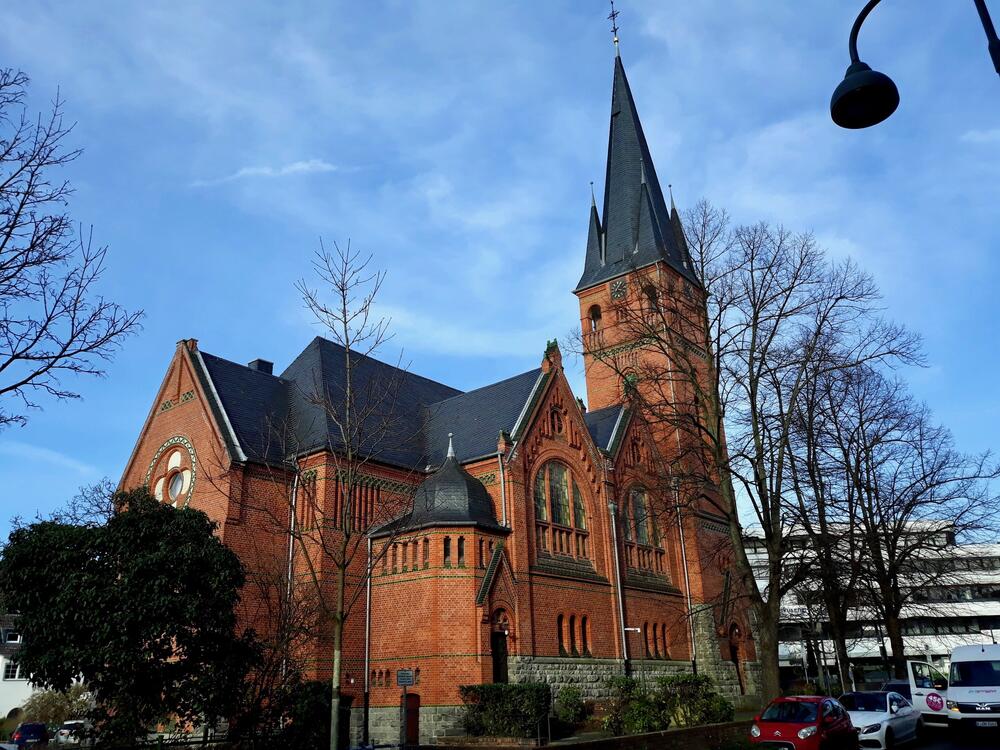
The pedestrian zone is especially deserted today. A sunny Sunday in February lured many to the river. But the thunderous approval, which roared from the pub somewhere around the corner, reminded me that today was the turn of the football derby. Leverkusen is visiting Cologne. And while Bayer footballers are convincingly first in the standings, Cologne will fight for survival in the first division this year. The noise from the bar tells me that at the stadium in the Cologne district of Mingersdorf, fifteen kilometers from here, the game is taking place to the delight of Leverkusen fans.
At the beginning of the 20th century, 170 workers in the Bajera plants asked the management of the company to help establish the company's sports club. This was met with approval. Three years after the establishment of the sports club, the football section of the sports club was also established in the Wisdorfer hof tavern. It was then decided that the colors of the club would be black and red. The football players qualified for the then German second league in 1936. Then, for the first time, the players wore the emblem of the Bayer concern - Bayer's cross - on their jerseys. Since the end of the seventies, Leverkusen has been in the first division, a winner of the UEFA Cup, a finalist in the Champions Cup, often second in the domestic championship behind Bayern Munich, which earned it the derisive name of Vice-Cousin. It looks like that will change this year.
Church with industrial design
In the very center of Leverkusen, actually in its historic district of Wisdorf, the large bell tower of the Church of the Heart of Jesus catches the eye. While evangelical clergy spoke of God as a fortress, Catholic believers built a true fortress. The church was built in 1929, and the bell tower was completed the following year. Since Leverkusen was founded as a constantly growing company in the chemical industry, the church, with its internal and external resemblance to a factory hall, consciously fitted into the environment.
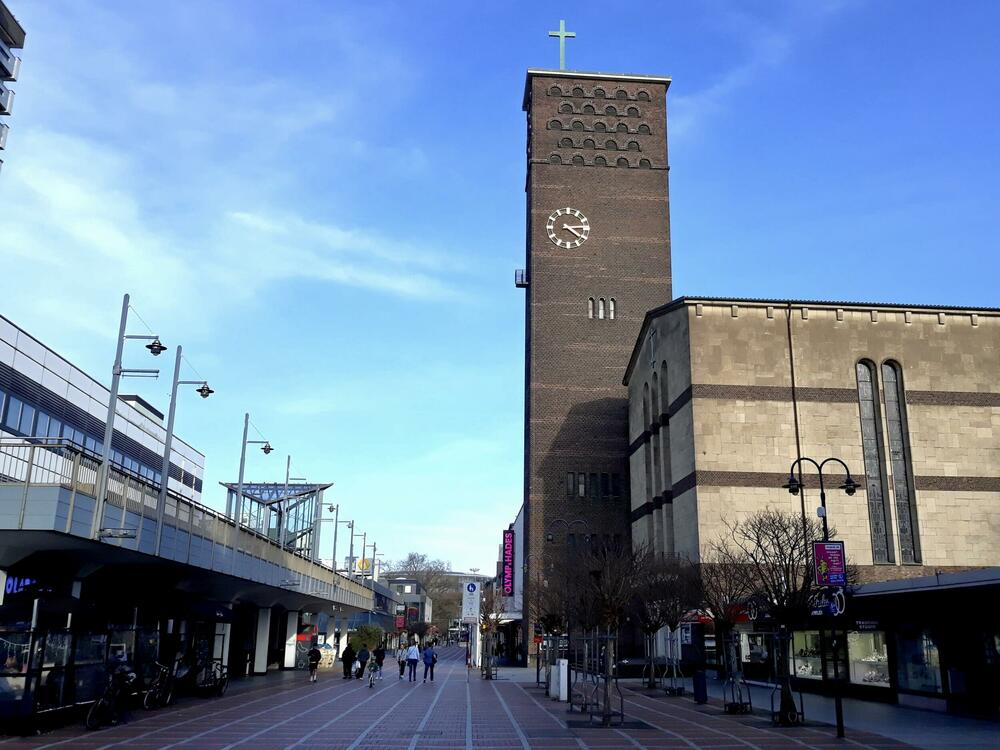
The pedestrian zone could be anywhere, typical shops and neatly paved streets. I walk towards the west, towards the river. The appearance of the streets is changing. Some blocks of buildings date back to the era before the First World War. Today, that construction seems more humane and more aesthetically appropriate.
I notice the Balkan bakery. In one of the side streets I also saw the restaurant Zagreb. In passing, some of our words often reach their ears. A few decades ago, mostly first-generation guest workers lived in workers' towns. Now it is younger people who are following in the footsteps of their grandfathers.
An idyllic part of Leverkusen rests on the banks of the Rhine. There you can see what this place would have been if Bajer had bypassed it - a nice, sleepy town, pleasant for Sunday walks.
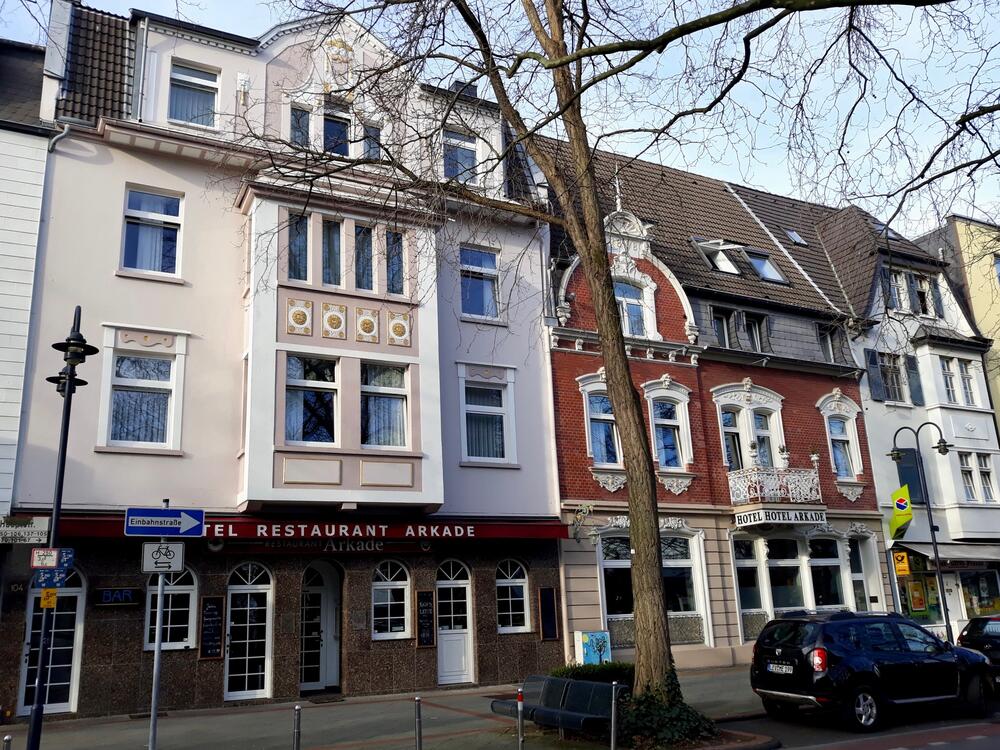
When a person steps out onto the coast itself, huge plants of the "Chemical Park" are splashed to the south. Pipes the diameter of buses, giant boilers and valves. It was as if someone had enlarged an ordinary laboratory to superhuman proportions. How did all this come about?
Apothecary's town
Karl Leverkus turned 18 in 1822 when Napoleon's dream of the French Rhine was already shattered. The former irrevocably entered the gravitational orbit of Prussia. A young man born in that part of Germany decided to study in Marburg, then got a job as a pharmacist's assistant in Trier. It was a good opportunity to learn the pharmacy trade. The oldest pharmacy in all German countries was located in Trier. Then he goes to Paris, enrolls in chemistry at the Sorbonne. In Berlin, he obtained a diploma in pharmacy, and in Giessen he defended his doctoral dissertation on the chemistry of silver. He founded a paint factory in his hometown of Vermelskirchen. Then he moved the factory complex to the Rhine village of Wisdorf, near Cologne, and named it Leverkusen - that was the name of the farm where his family came from.
Leverkus was an exemplary employer, he built apartments for workers, founded a factory choir and a fire brigade. After his death in 1891, the sons sold parts of the factory to the manufacturer Fridrich Bayer from Wuppertal. Thus, in the century before last, the names of Bayer and Leverkusen crossed paths for the first time. It wasn't until 1912 that the Bayer company moved its headquarters to Wiesdorf on the Rhine. In the chronicles, that settlement existed for 800 years, it was repeatedly flooded by the Rhine, forcing people to build further from the river. But the arrival of Leverkus and Bayer in this settlement will be the sign of fate that turns ordinary places into historically significant points on the map.
I'm thinking about cities that didn't even dream of their future power, about pure chance that is subsequently loaded into the past as destiny. And the place for such thinking is ideal. Viewpoint on the pedestrian bridge above the promenade.
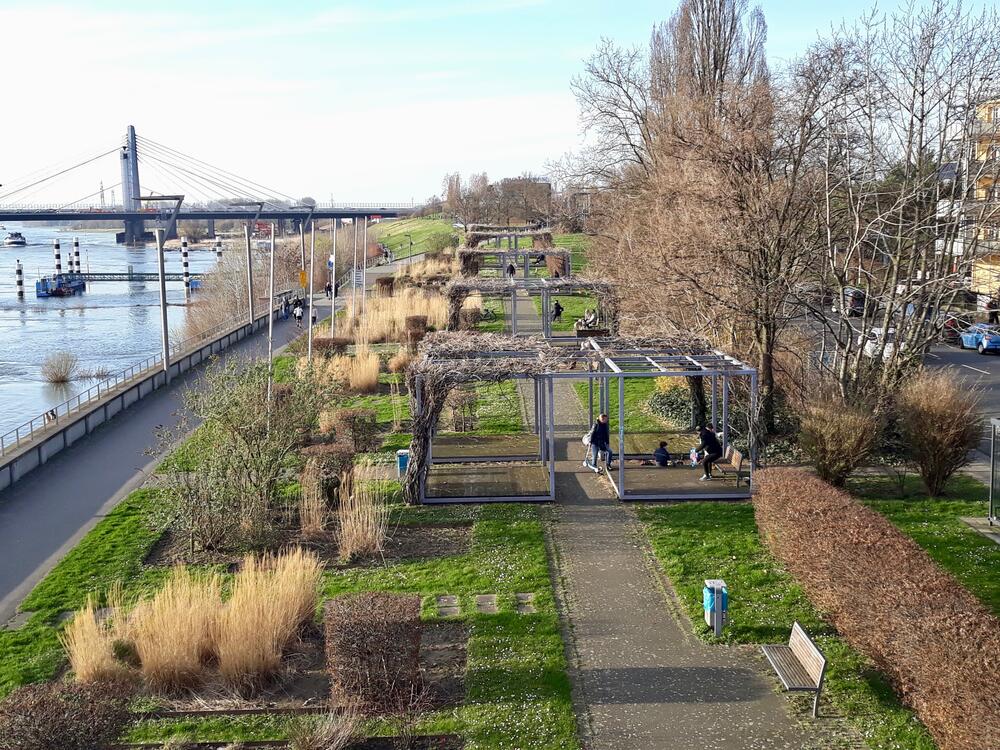
A serious city was created by joining the surrounding settlements and the growth of factory chimneys. It was officially named Leverkusen in 1930 in honor of the Leverkusen apothecary who was the first to build a paint factory and a workers' settlement. During the 20th century, the city will become more and more powerful and will swallow the surrounding towns to grow to today's 165 souls.
Wilhelm Vesteker, a man who once worked as a writer and journalist on the right side with the Nazis, wrote the book "The Rebirth of German Cities" after the war. In it, Leverkusen is marked as a "curiosity", as a "city without a past". That is both true and false.
Leverkusen was not a very favorite destination at the beginning. The workers who came with bellies for bread came up with a song that tells something about the long-ago pioneer days of the town. In German it sounds like this: Kann man einen nicht verknusen,/ Schickt man ihn nach Leverkusen./ Dort an diesem End der Welt / Ist man ewig kaltgestellt.
For this occasion, I sang this labor song:
Whoever is not to your liking / send him to Levrkuzen / There, at that end of the world, / so that no one bothers him anymore.
Guard on the Rhine
When you go out onto the promenade along the Rhine, Leverkusen turns into an idyllic town. A beautifully landscaped embankment and park, a vantage point from which you can see the factories nestling on the thick arch of the Rhine. On sunny days, it's definitely good to happen upon a place like this.
I'm walking along the shore and from afar I see a building on the shore, on the side of which I read: Wacht am Rhein. That is the name of a patriotic poem written by Max Schneckenburger back in 1840. Then France again began to dream the Napoleonic dreams of reaching the Rhine, as a "natural border". Young Max didn't like that, so he wrote the song "Guard on the Rhine". It contains a lot of national pathos, swearing that the Rhine will remain a German river: "To the Rhine, to the Rhine, to the German river..." echoes in the chorus. It should come as no surprise that the song eventually became popular as an unofficial national anthem, especially in Imperial Germany, or during the First World War.
Fortunately, this "Guard on the Rhine" is not a museum of German patriotism, but a restaurant with a fantastic terrace.
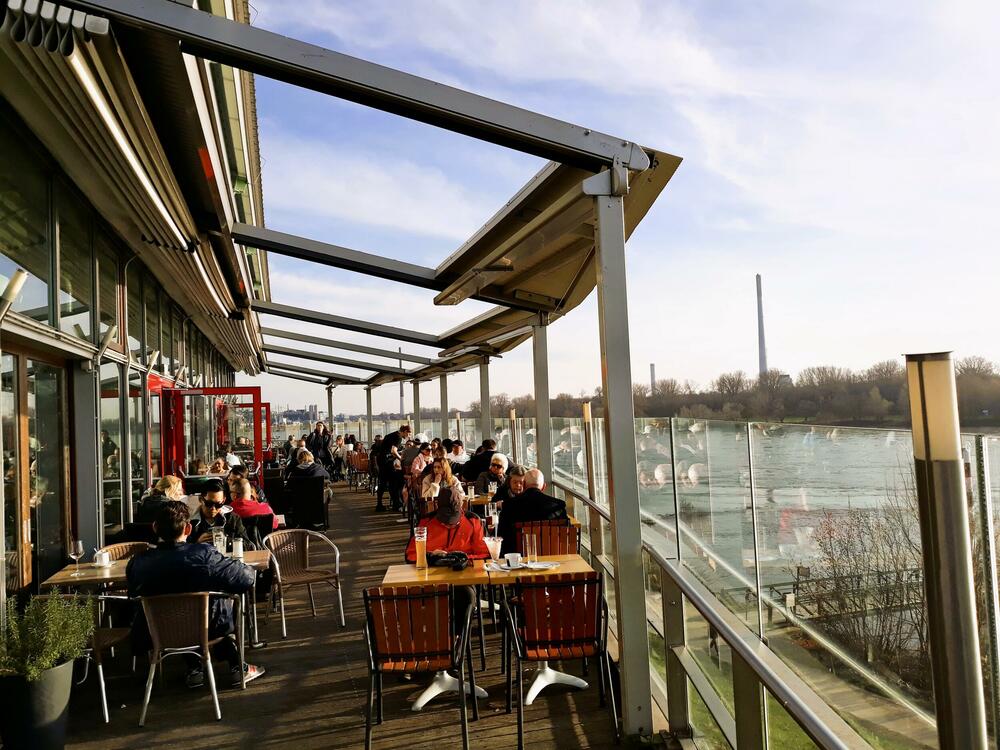
I spent almost two hours there. The sun swept westward, turning the silver of the Rhine into copper. The best German inventions are not the famous car engines, nor the cars themselves, but beer gardens. This is one of those places that are always crowded. I am convinced that there are beer gardens in heaven. And in the Garden of Eden, great rivers flow slowly while above them floats a cheerful human murmur.
I decided to pass through Neulandpark, a beautifully landscaped area between the highway and a luxury neighborhood built for Bayer's middle class.
Behind the park rose the mushroom of the water tower, built in 1978. It is so close to the heart of the local people that it is even mentioned in the anthem of the fans of the Leverkusen football club.
At the end of the park flows the river Din - fast and small. This is the border beyond which the vehicles on the highway are buzzing behind the embankment. Next to the river itself, a semicircular promenade has been built.
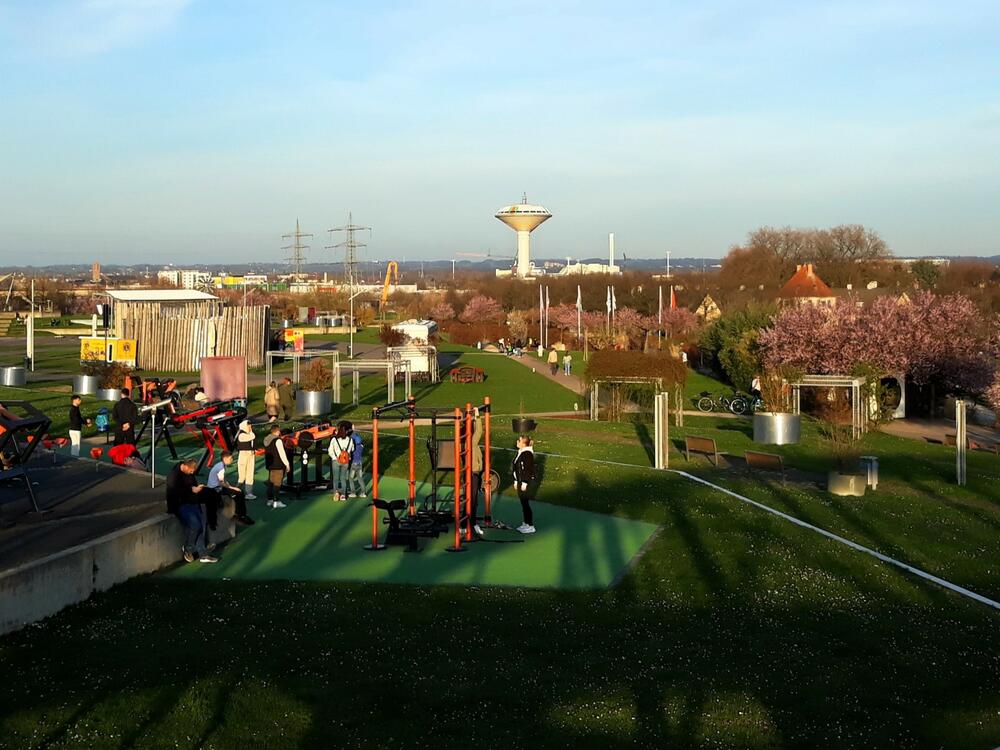
I headed in this direction to the train station. When I arrived at the platform, at its end, a huge circle with the words BAYER written vertically and horizontally lit up in the twilight. I remember that the founder of the company in the 19th century had an E in his last name instead of the letter A after the B. But he decided to change the spelling - the pronunciation is the same - because at that time a person with his last name appeared in Berlin who was famous as a fraud. By the way, Bajer is a surname that originates from the Lusatian region and in the local dialect means - storyteller.
I say goodbye to Leverkusen and to Europe's biggest light advertisement - the Bayer Cross. It's that circle on the aspirin box that hungover people around the world reach for every morning.
I don't have much time to sort out impressions. I get off at the Cologne station Dojc after about fifteen minutes. In the underpass, I encounter a cordon of police and a crowd of Cologne fans. They lost at home to Leverkusen. On the faces of the otherwise docile Rhinelanders, heavy ill will. It's a good thing they don't know where I'm coming from.
Bonus video:



